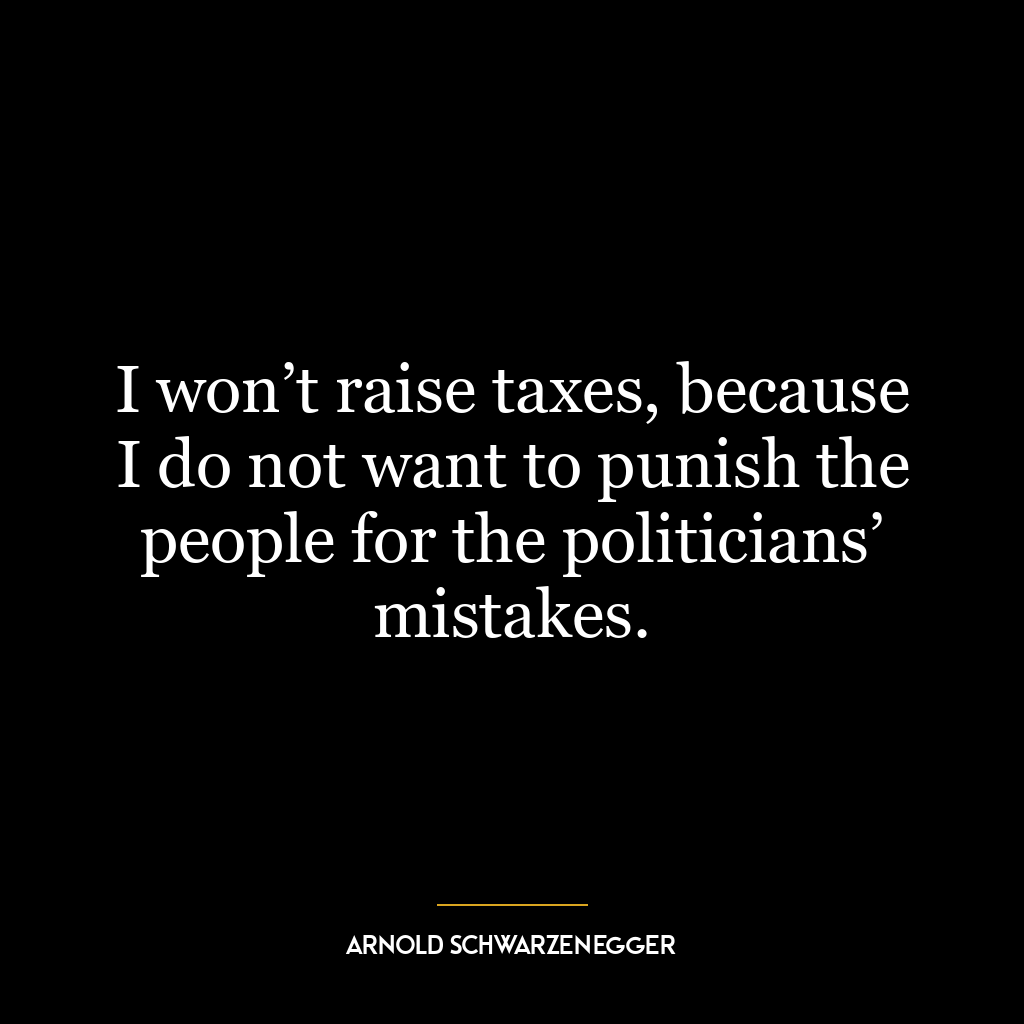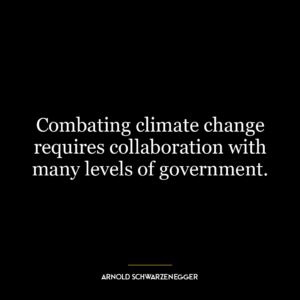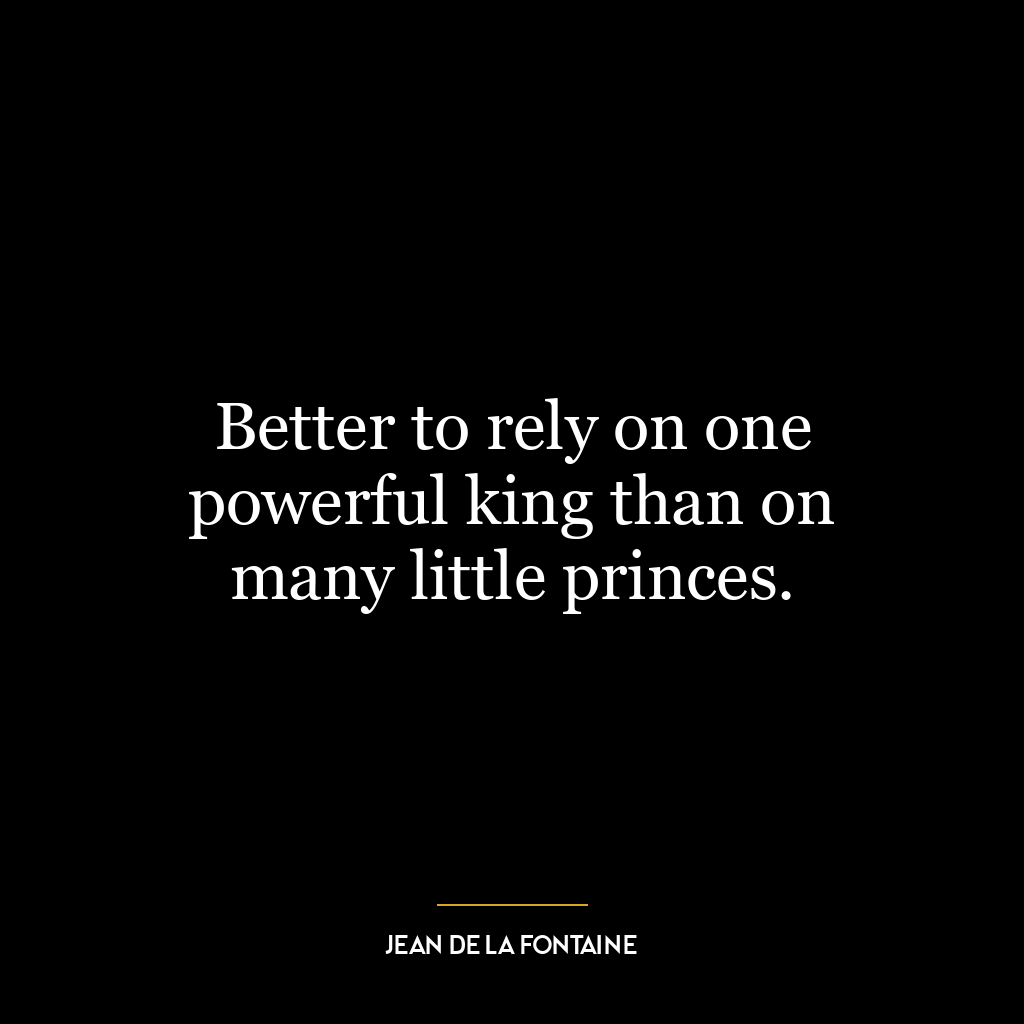I won’t raise taxes, because I do not want to punish the people for the politicians’ mistakes.
This quote essentially emphasizes the belief that the general public should not bear the brunt of the mistakes made by politicians, particularly in the form of increased taxes. The speaker is asserting that it is unjust to penalize citizens by raising taxes due to the errors or misjudgments of those in power. The quote proposes that politicians should be held accountable for their actions and decisions, rather than passing the consequences onto the people they represent.
In terms of economic policy, this quote proposes a viewpoint that leans towards fiscal conservatism – the idea that taxes should be kept low and government spending should be controlled. It suggests that high taxes can be seen as a punishment to citizens, especially if they are used to compensate for poor political decisions or mismanagement of public funds.
Applying this quote to today’s world, it could be seen as a call for more accountability in politics and governance. It suggests that politicians need to be more responsible with public funds and should not resort to increasing taxes when they make mistakes or fail to manage the economy effectively.
In terms of personal development, this quote could be interpreted as a reminder to take responsibility for one’s own actions and not to pass the blame or consequences onto others. It encourages individuals to be accountable for their decisions and to rectify their own mistakes rather than making others pay for them. It also emphasizes the importance of fairness and justice in all aspects of life, from politics to personal relationships.















